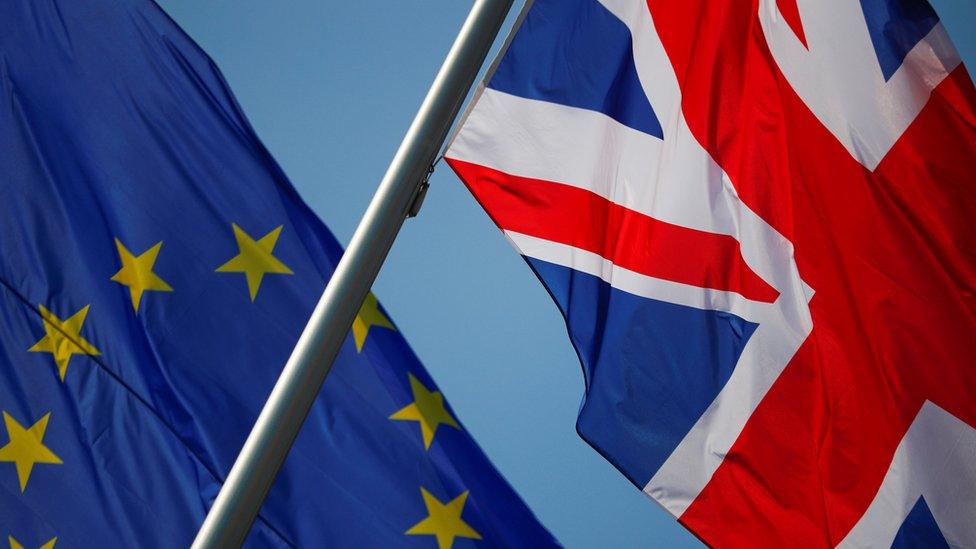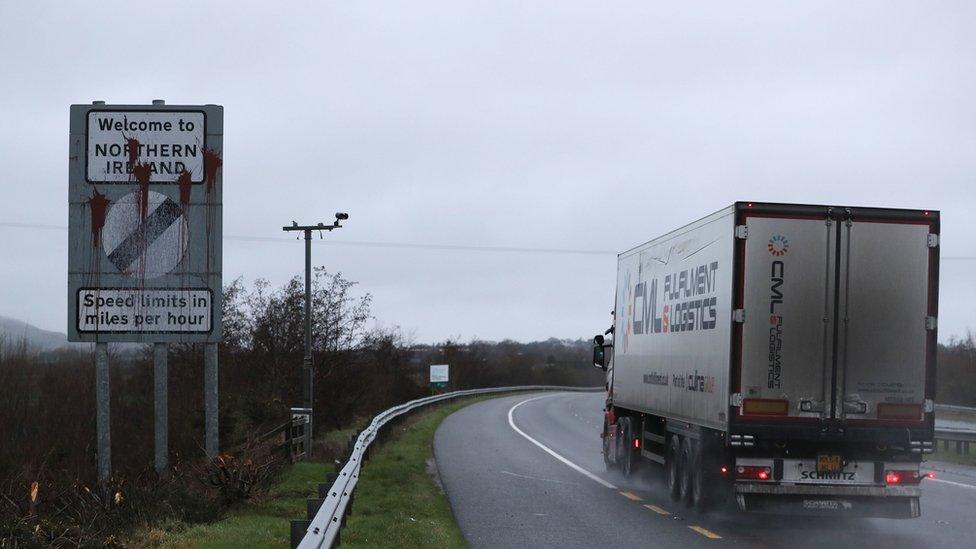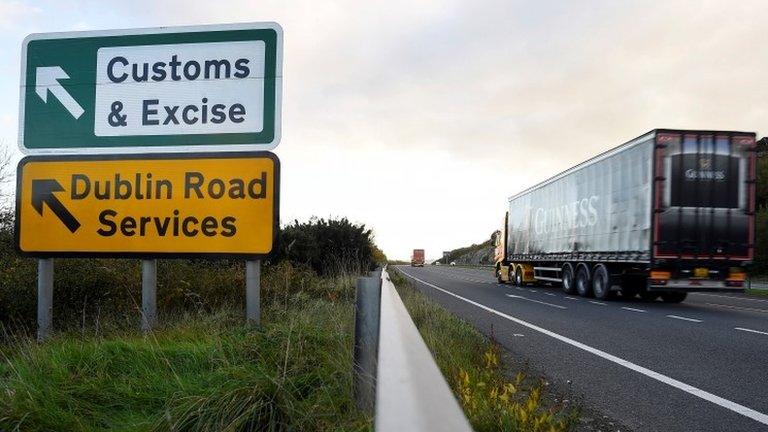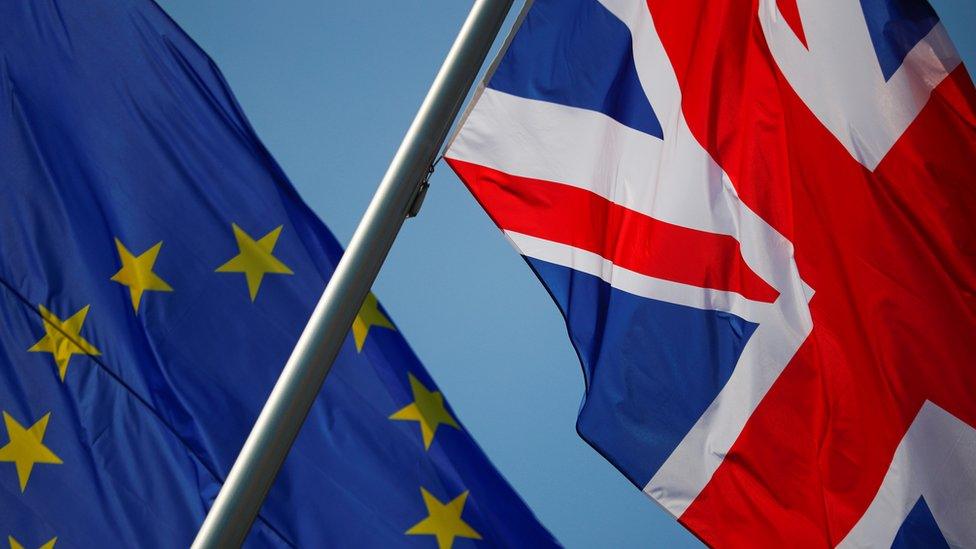Brexit: What is the latest row about?
- Published

The government has published proposals which could override parts of the Brexit withdrawal deal and breach international law.
A major part of that deal concerned NI and preventing a hardening of the land border with the Republic of Ireland.
At the end of the Brexit transition, NI will stay in the EU single market for goods while the rest of the UK leaves.
That means new checks and controls on the trading of goods between Northern Ireland and the rest of the UK.

Both the UK and EU are committed to no new border checks on the island of Ireland
However the details of those new controls are still being negotiated by the EU and UK through a body called the Joint Committee.
The government says it is acting unilaterally to create a safety net in case those negotiations don't reach agreement.
What are the government proposals?
It is giving Northern Ireland businesses a guarantee they will have "unfettered access" to the rest of the UK.
The EU has previously insisted that paperwork, known as an exit summary declaration, would be needed on NI to GB trade.
It is also intending to narrow the scope of EU state aid rules in Northern Ireland.
State aid concerns the type and amount of government support that can be given to businesses.
As they would still be in the EU single market, Northern Ireland firms would still be covered by EU rules.
But GB-based businesses which trade in Northern Ireland could also be covered by these rules, something the UK government wants to prevent.
Why is this breaking international law?
Because the government would be unilaterally changing an international treaty.
Northern Ireland Secretary Brandon Lewis admitted it would break the law in a "very specific and limited way".
Brandon Lewis says Northern Ireland customs rules legislation do “break international law in a very specific and limited way”
Previously, Canada deliberately broke obligations of United Nations anti-narcotics treaties so it could legalise cannabis.
If it goes ahead, the UK could face proceedings at the European Court of Justice.
They could also risk the trade talks, although EU sources have said they will not seek a suspension of the discussions.
Is it certain the government will actually do this?
The government is insisting it wants to continue negotiating the Northern Ireland issues through the Joint Committee.
So, in theory, if it gets what it wants in those talks, then it wouldn't have to act unilaterally.
This will be regarded sceptically by the EU which sees the move as undermining the Joint Committee process.

President of the European Commission Ursula von der Leyen is "very concerned" by the UK government's intentions
What has the reaction been among EU leaders?
Anger, bemusement and concern.
Ireland's Foreign Minister Simon Coveney said, that in contrast to previous Brexit developments, he had received no warning of what the UK was planning.
President of the European Commission Ursula von der Leyen tweeted: "Very concerned about announcements from the British government on its intentions to breach the Withdrawal Agreement.
"This would break international law and undermines trust".
Maros Sefcovic, the senior EU official on the Joint Committee, has called for an emergency meeting to discuss "this very pressing, very urgent and very serious matter".
- Published9 September 2020

- Published2 February 2024

- Published8 September 2020
